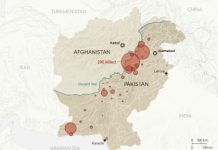U.S. President Donald Trump’s recent tour of the Gulf states has once again captured global headlines, not only for the dramatic diplomatic overtures but also for the staggering financial figures involved. During his visit, Trump announced over $600 billion in investment pledges from Saudi Arabia alone — a colossal sum that, if materialized, would mark one of the most significant foreign investment commitments in recent history.
Trump, never one to shy away from spectacle or grandiosity, hailed the agreements as a testament to his enduring global influence and business acumen. While many remain skeptical about the actual disbursement and long-term impact of these investments, there is little doubt that the visit was choreographed to send a message: Trump’s political ambitions remain alive, and he still wields influence in international corridors of power.
Central to the tour was Trump’s renewed push for Saudi Arabia to normalize relations with Israel. Following in the footsteps of the Abraham Accords brokered during his presidency, Trump emphasized the importance of continued momentum toward Arab-Israeli reconciliation. Although Riyadh has yet to officially recognize Israel, Trump’s remarks suggest that the possibility is not off the table. He framed this potential diplomatic breakthrough as both a strategic necessity for regional stability and a legacy-defining move in his broader vision for Middle East peace.
Trump’s rhetoric, however, extended beyond the Middle East. In a surprising moment during his remarks, he brought up the long-standing conflict between India and Pakistan. He claimed personal credit for preventing what he described as a “nuclear war” between the two South Asian rivals during his time in office. While such claims are difficult to verify, they reflect Trump’s tendency to highlight his role in de-escalating global tensions — a point frequently contested by critics, but embraced by his base.
The tour has drawn mixed reactions globally. Supporters laud the massive investment commitments as a sign of economic optimism and a reinvigoration of U.S.-Gulf ties under Trump’s influence. Critics, however, caution against interpreting pledges as firm deals, warning that such announcements can often be symbolic or politically motivated. They also point out that Trump’s foreign policy legacy, particularly in the Middle East, remains controversial — marked by a transactional approach that some say neglected deeper regional complexities.
Nonetheless, Trump’s visit underscores his enduring appeal among certain international actors who view him as a pragmatic dealmaker. The spectacle of investment pledges and political overtures is as much about perception as it is about substance. Whether or not these pledges translate into tangible outcomes, the optics serve a purpose i.e bolstering Trump’s image abroad.

















